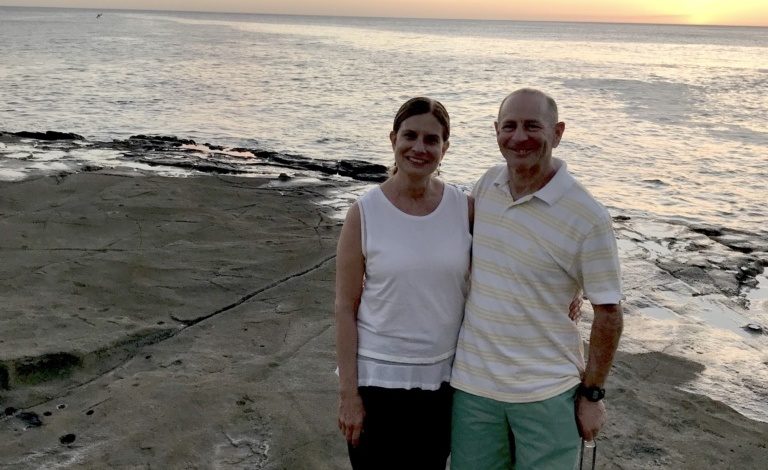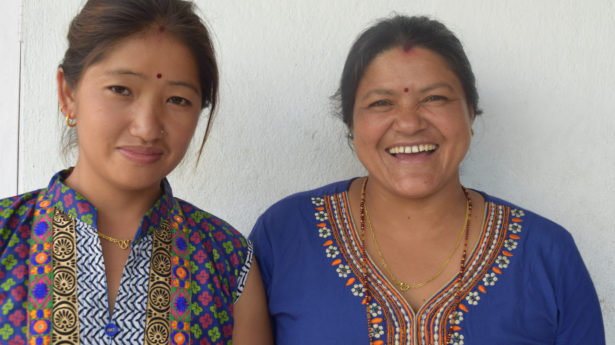The Unitarian Universalist Service Committee advances human rights through grassroots collaborations.
Nicaragua: A Difficult Country with Resourceful People

By Carol and David Holstein on March 5, 2018
We joined 13 other UUs for a UU College of Social Justice (UUCSJ) trip to Nicaragua. As you might recall, the UUCSJ is a collaboration of the Unitarian Universalist Association and the Unitarian Universalist Service Committee (UUSC), which provides experiential learning opportunities in social justice that inspire and help us live our faith. It is a privilege to get to know UUs from across the country, bond with UUSC leadership and meet individuals making a difference in their communities.
Our children cannot believe that we go on a vacation where we need to study plus do homework. The course work covers quite a range but boils down to:
- Appreciating Nicaragua’s history, including a long period of deplorable actions by the United States, and
- Increasing awareness of cultural differences from heritage as well as from economic circumstances.
Nicaragua is the second poorest country in the Western Hemisphere with its six million people having a per capita GDP of only $2,200. It has again moved toward totalitarianism from an administration that began with a populist president. Daniel Ortega has been president since 2007 and his younger wife has become vice president, insuring that the family will remain in power.
Strikingly, Nicaragua is a beautiful country. It has volcanoes, huge lakes, oceans, beaches, rainforests, mountains, and kind, friendly people. It also feels like a step back in time with $10 dinners, $1 beers and $50 hotel rooms.
Our program focused on two areas: women’s rights and environmental rights.
We spent considerable time with Fundación Entre Mujeres (Foundation Among Women, or FEM) in Northern more rural Nicaragua. This group is supported by UUSC, and has a mission to help vulnerable people as well as recognizing women’s role in creating enduring groups, strengthening families, and creating wealth. Nicaragua’s machismo culture, men owning the land, an acceptance of violence against women, and women’s being relegated to chores and childbearing produces a clear division where men hold all the power. Basically, FEM exists to empower women. It’s education about their rights. It is understanding that violence against women is not OK. Having children is a choice. It’s the sharing of the household income and wealth. FEM is servicing a group of women who are largely peasants (campesinas) with little formal education. FEM’s reach has grown over time. It trains women in bio-intensive gardening, maximizing the productivity of small subsistence plots. It helps women get their goods to market via a stall to sell produce. It created a co-op to sell coffee, honey, and hibiscus. Their fair-traded coffee is marketed by a Wisconsin company under the brand “Just Coffee.” The women are extremely passionate about how FEM makes a difference in their lives. The most moving “speech” was from a woman who explained how she no longer buys onions from the market but rather sells them. But, the magical part was that by owning productive land, she gave her daughters a future which is better than hers and provides hope.
Climate change is having a big impact. Rain falling in the dry season; erosion on both coasts; the possibility of a canal through Lake Nicaragua all have catastrophic implications to traditional ways of life. Being environmentally sensitive is a “luxury” of wealthy countries. That said, we visited Los Guardianes de Yaoska (Guardians of the Yaoska) in Rancho Grande. This group of peasant farmers is fighting a Canadian mining company B2 Gold. The Yaoska is a river which is the lifeblood of the community. Thus far, the Guardians have been successful at stopping the company from setting up an open pit gold mine. They are protecting their rural farming life against a government that encourages mining with little/no safeguards. But, their success has not come without sacrifice. They had to forego a year of school for their children as the company and government were using schools to spread the pro-mining message. Violence against protestors was always a real threat. The most stirring speech was from a man who held up the produce he grows – Malanga – and stated that this is real gold which you can eat.
It is inspiring when you realize that people with little education, little money, and little power still can be successful and make a difference. Their commitment, dedication and drive to preserve their lifestyle for the Guardians or to improve women’s place for FEM is truly amazing. It provides some hope as we look at our situation in the United States and the intractability of so many issues.
Read This Next
UUSC Recommendations for the Global Compact on Migration
UUSC staff offer remarks at the Second Informal Thematic Session for Global Compact on Migration at the United Nations Headquarters in New York on May 23, 2017. Read More →
